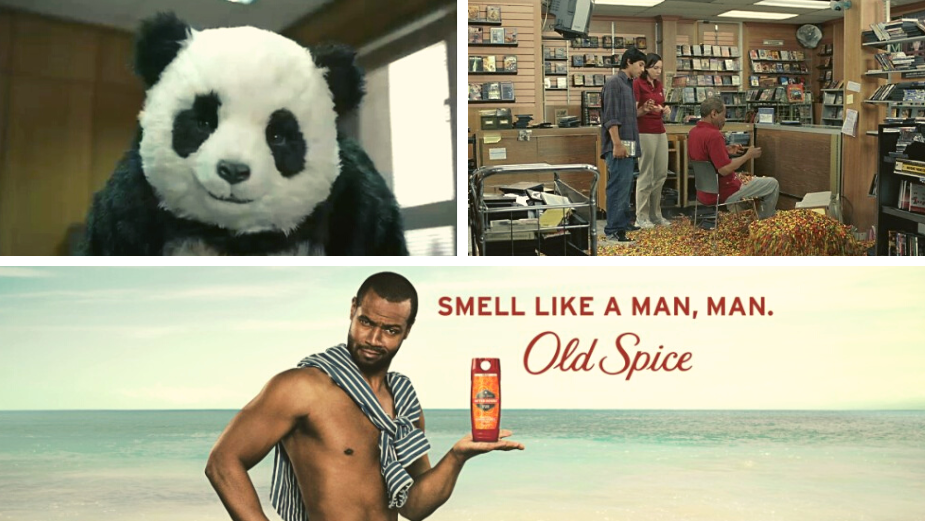
Finding Your Funny in the Age of ‘Blandvertising’

When we talk about comedy in ads, I need to be the straight man here. I want to put across a serious case for comedy.
Where have all the comedy ads gone? Where the god damn hell are they? Sorry if I offended any believers. Maybe it's a sign of our ‘woke’ times - although it seems very ‘un-woke’ to still be saying ‘woke’ at this stage.
Advertising is no different than any other section of society and comedy outside of advertising has come under increased scrutiny. Despite comedians like Dave Chappelle’s best efforts to purposely rattle the comedy cage, it is apparent that more and more comedy is being “cancelled”.
All things to all people
I believe the state of comedy in advertising reflects how a lot of brands operate now, as commercials fall victim to being all things to all people.
Put plainly, this is because brands don’t want to risk offending any potential pocket or purse, so they dare not offend anyone, as everyone is now in their target market - and if they’re not, they are working hard to bring them on board with the brand. Thus falling head-first into ‘blandvertising’, which, although fun to say, is no fun to make and even worse to watch.
When this happens, the joke is on us.
‘Blandvertising’ is what you get when the majority of ads, churned out by the majority of brands, produced by the majority of agencies, remain comfortably in the middle of the majority, so as not to offend anyone or entertain one target in particular. Like a lukewarm wedding speech, there’s something for everyone in these ads, bait for multiple demographics; appealing to husbands, wives, mums, dads, grandparents, even Great Aunty Bethel.
But an ad is not a wedding speech so why masquerading as one? These types of ads don’t lead to laughs.
To quote actor, advertiser, and all round funny man Ryan Reynolds, who recently made a case for comedy in advertising at Cannes Lions; “Humour and emotion travel the most virally. If you really want to punch through, you make people laugh.”
Timing it right
Comedy is all about timing. We can trace comedy through the ages to see how it fluctuates from the absurd, to the observed, back to the surreal. In the 2000’s, ‘oddvertising’ became an American phenomenon, and 2007 was seemingly the pinnacle. Remember ads like Skittles ‘Midas Touch’, Old Spice ‘I’m on a Horse’ and Starburst ‘Berries and Cream’? These were funny and weird, but the weirdness was always based on a product truth and crafted by some very smart people. These ads were hugely successful and gloriously funny.
After this year’s Oscars, we now know comedy can be - literally - slapped down. Those of us who work in the industry witness it happen in meetings all the time: the “We don’t do comedy” spiel. Well, Old Spice didn’t do comedy and at the time, they were on their knees. As soon as they did take a chance on comedy - originally with Bruce Campbell - relevancy and sales shot up. Comedy became the (man on the) white horse that saved this brand from obscurity.
The Old Spice spot was devised around a clever strategy that focused on the old fashioned tropes of ‘manliness’ - Lynx was for boys, Old Spice was for men. It poked fun at the conventions it helped create decades before. It was a simple but brave strategy, hilariously and deftly executed, time and time again.
The Panda Cheese ads in 2010 are another example of well executed ‘oddvertising’. The concept was simple: an aggressive Panda appears out of nowhere, coercing people into eating the product by forcing it into their shopping trolley or adding it to their lunch tray. This weird type of comedy has become rare - as rare as said Panda.
As with everything successful, it was copied.
Alas, the people who copied the humour made poor imitations. Worse still, they left the ‘ownable’ brand truth out of it. Odd humour had originally been embedded into the ownable product truth which meant what on the surface seemed bizarre, was actually a genius way to make the advert memorable. Failing to do this meant we were left with ineffectual advertising that was weird for weird sakes and not intrinsically linked to the product or service it was selling.
Humour vs emotion
Nowadays, advertising is capable of triggering people’s emotions in other ways. There’s 60 second tear-jerking Christmas ads to write, and we can all agree comedy isn’t right for these types of lengths. The formula of tension, reveal, gag, is ideal for 30 or max 40 second spots, and even then you’ve usually gone into multiple scenes of your target experiencing the same joke.
So what gets shared? Emotion. It gets shared and shared again, particularly among the largest buying groups.
As a result, brands have become more caring. As that’s where people are going, at least at a surface level. I’ve liked it, therefore, I care. This virtue signalling was adopted by both brands and the audience. Virtue signalling your comedic tastes just isn’t as in vogue and this has resulted in brands taking themselves too seriously.
Emotion is an easier sell. And there’s a notion that this is what people want. Inspirational and emotional work with a purpose. The Guinness ‘Surfer’ ads nowadays would’ve had to include some sort of PSA: “For every pint drank we will save two endangered seahorses from the Coastlines of mainland Britain”.
The New Funny
But there is a new funny - and it’s different than before. Sometimes, it’s all about using data in a funny way. Like Spotify’s campaign in which they used the music people were listening to, to tell these lovely and often localised stories. Or hijacking other brands like Burger King did when they hid a Big Mac behind a Whopper.
Maybe this is the new funny.
But whether it’s using data, written in a funny way or showing up funny in funny places, whatever the punchline; humour in advertising has to be relevant to the brand. Funny that.















